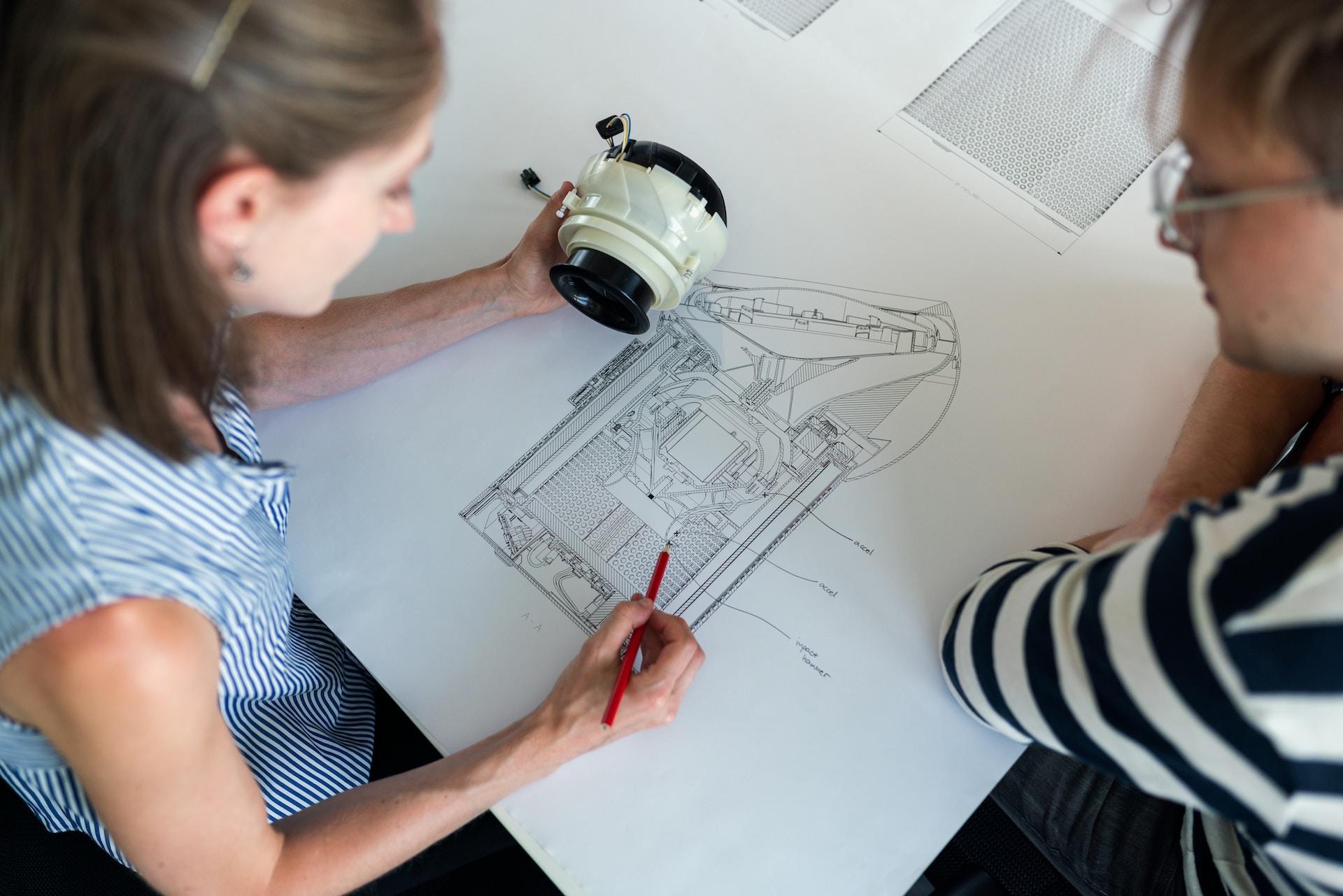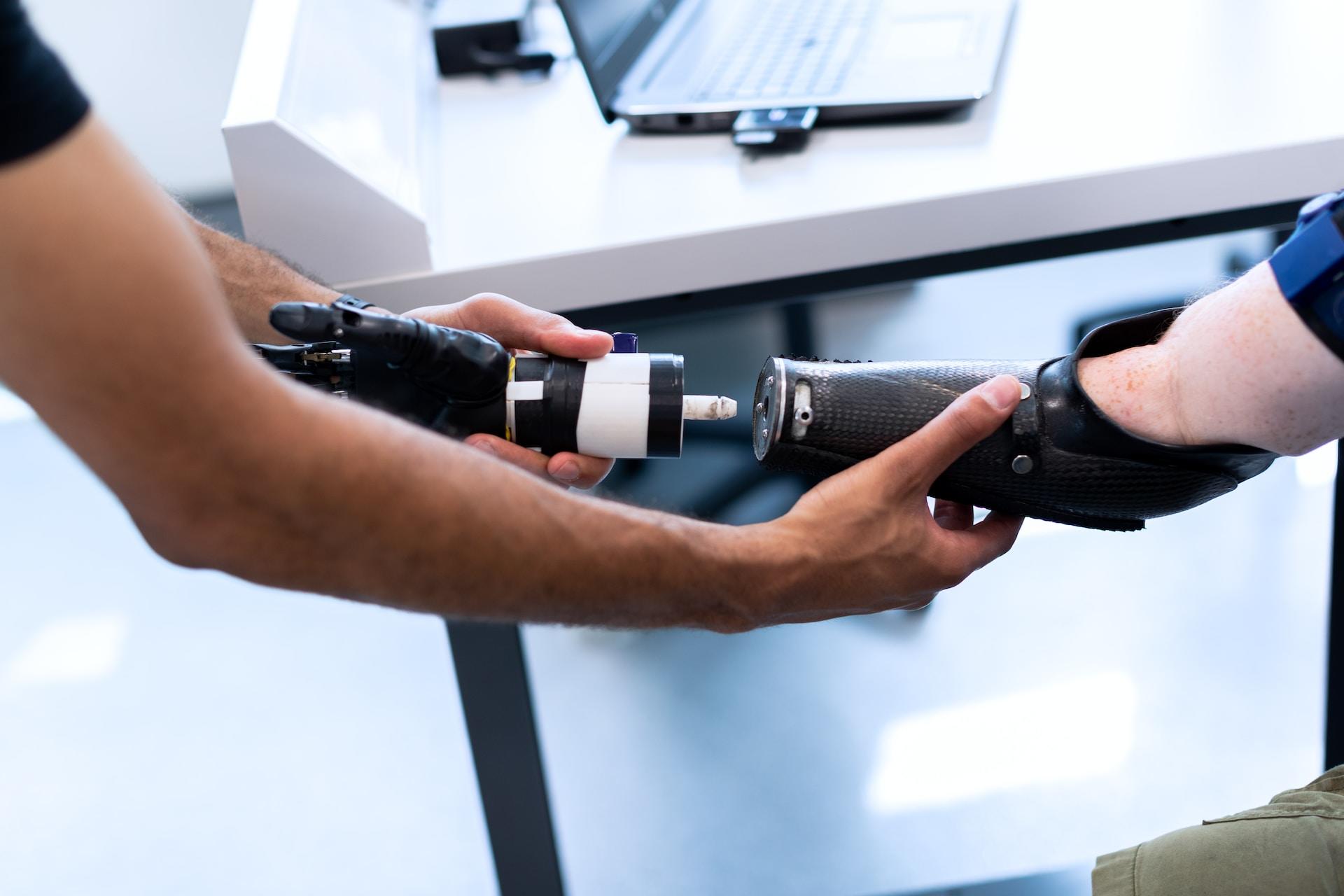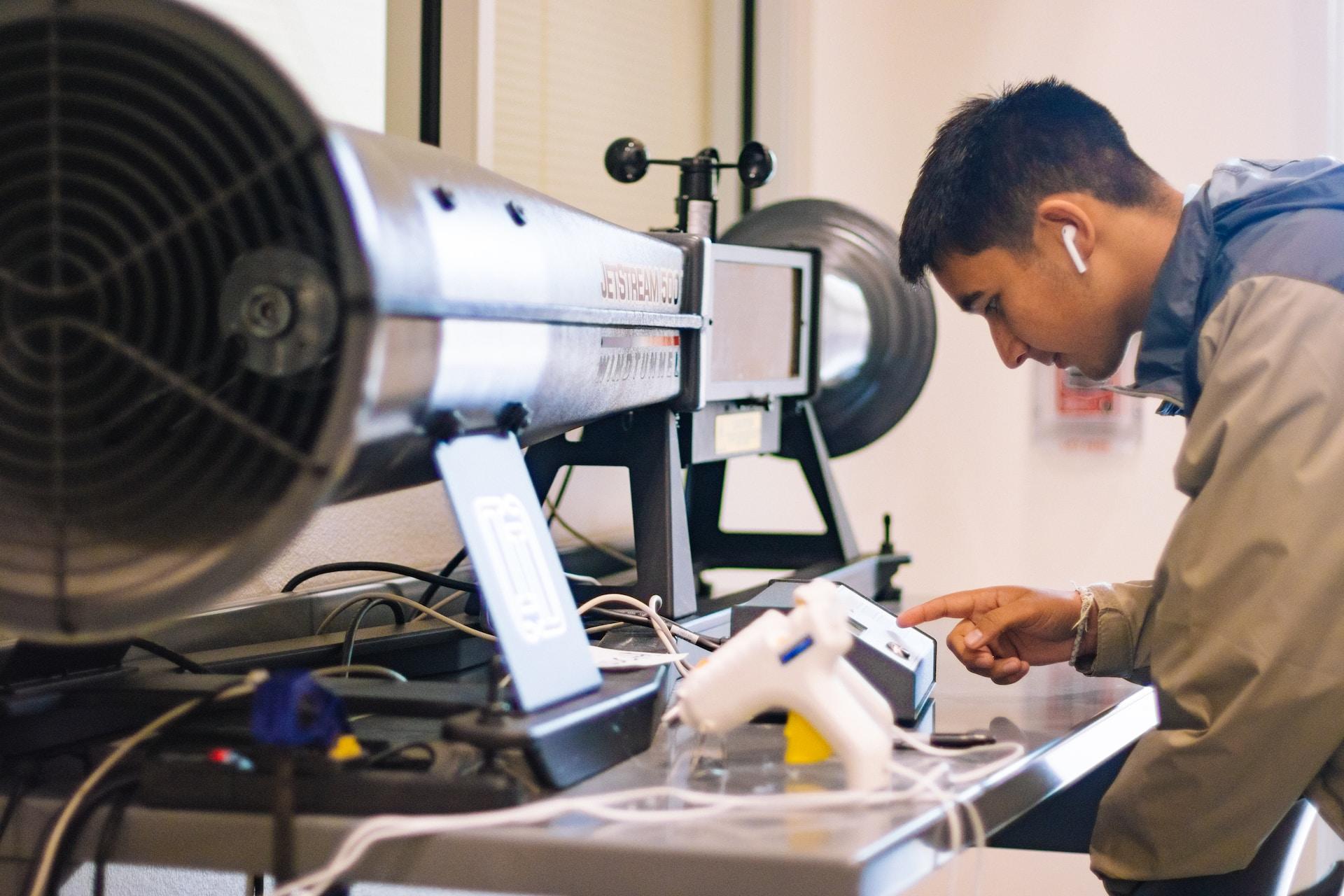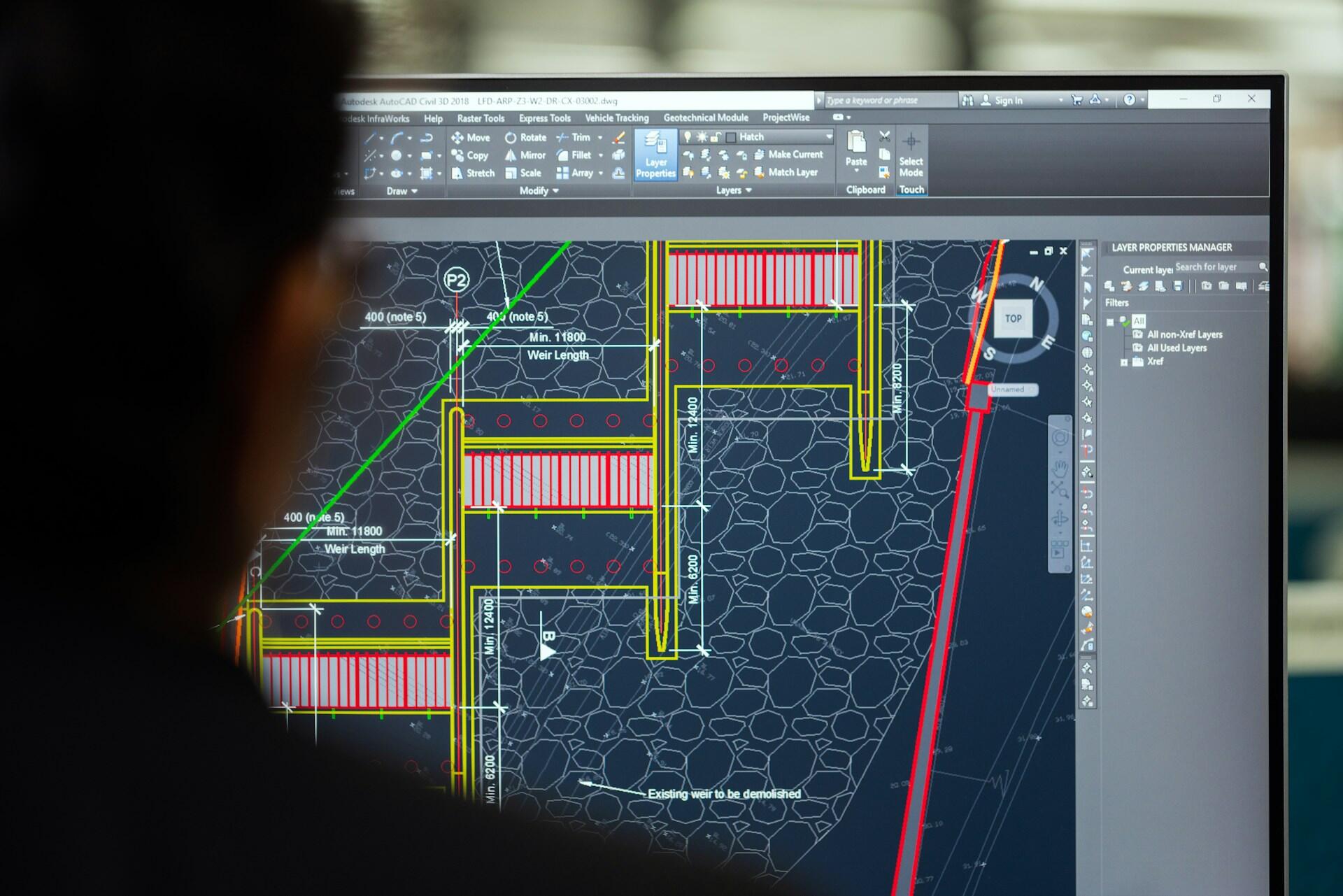The coalition Engineers Declare has a message for anyone considering a career in engineering: "Yes, do it now and do it quickly!". This engineering association recognises that our built environment and activity intensify environmental and climate risks.
They urge engineers across Australia to join them in finding solutions to minimise those risks. You may have already thought about a career in engineering with that goal in mind.
To help your efforts succeed, this article covers the steps to becoming an engineer in Australia and drills down to specifics. It covers different types of engineering work and which university degrees will land students the engineering jobs they want.
We'll also look at how much you stand to earn as an engineer.

Different Types of Engineering
Humans have been engineering things since time immemorial but nobody called themselves an engineer until around the 12th Century. And then, the discipline persisted as an overall term until roughly 600 years later.
That's when engineers started specifying what type of engineering work they did.
Today, we have engineering specialities for just about everything that could be engineered. Still, most don't think of food engineering when trying to decide which type of engineering to earn their Master's degree in.
Food engineering is an actual field, in case you were wondering. It applies engineering principles to food manufacturing, preservation and shipping.
Everything in our built environment results from an engineer's imagination and labour. Civil engineers plan and build roads, bridges and infrastructure like sewers and waterways.
They work closely with transportation engineers, who specialise in transportation networks' safety and functionality. Civil engineers also coordinate with architects and building engineers.
If we were to list every type of engineering, their functions and which other engineers they coordinate with, we would be reading for hours. Instead, let's distil them down to four main 'branches': electrical, mechanical, computer and civil.
In engineering circles, they are called the Big Four; they cover every engineering sub-discipline.
In fact, computer engineering is an electrical engineering subtype. Computer engineers design and build the components that make the computer function. Those include circuit boards, central processing units (CPUs) and other computer hardware.
Computer engineers often work with software engineers to design and build computer mainframes and networks.
Electrical engineers, as you may have guessed, deal with everything electrical. They start at the source - power generating stations and ensure electricity gets from there safely to the sockets in homes and offices. But that's not their sole area of concern. They work on everything electricity-related, including the equipment and devices, transformers and substations.
Mechanical engineering is just as broad a discipline. This type of engineering is physics- and maths-heavy; it also draws on materials science. Your refrigerator is a marvel of mechanical engineering.
Everything from the door to the sliding shelves and drawers shows how precise mechanical engineers are in their designs. The achievement those features present is amazing!
But only until you discover that Léon Creux, a French writer and mechanical engineer, also designed the coolant system.

Types of Engineering Jobs
Engineers work in laboratories, offices, workshops and outdoors. Industrial engineers work in manufacturing concerns, designing and maintaining production machines.
Agricultural and environmental engineers spend much of their time collecting and analysing air, soil and water samples. But they design and build things, too.
There's substantial overlap in engineering work. A software engineer and a computer engineer have to know at least some of each other's jobs so they can work together. Likewise, a building engineer has to know aspects of electrical engineering and civil engineering to design structures.
As you review engineering courses Australian universities offer, you'll notice two oddities. None of them offer a 'plain' engineering degree and all engineering majors include seemingly unrelated courses.
For instance, Monash University's aerospace engineering program includes courses in automotive engineering.
That doesn't mean Monash engineering graduates will soon make cars fly. These courses are organised this way to demonstrate that like systems incorporate the same engineering principles.
Incidentally, Monash aerospace engineering students also take a course in naval engineering; boats relate to cars, trains and planes, too.
You might have a hard time finding your preferred engineering job as you look through engineering study choices. Don't let that worry you. As you've just seen, engineering specialities have a lot in common.
If your desired engineering job title doesn't feature, you only need to focus on four types of engineering and choose from among them.

Comparing Engineering Degrees
The first step to becoming an engineer in Australia is deciding what type of engineer you want to be. That might pose a challenge because the engineering field abounds with choice and opportunity.
You won't have to declare your major during your first year at university but choosing an engineering pathway is the pace to start. As your studies progress, you'll find yourself drawn to a particular type of engineering; you can declare your major then.
You must complete your studies to earn your engineering credentials. There's no harm in concluding you only have enough staying power for four years of university learning.
You can access plenty of engineering specialities with only a Bachelor's degree, and you can always go back to school later.
You might have a hard time finding work straight out of university. Engineering relies as much on experience as it does on skills you learned in school. So you might first join an engineering team as a technician and work your way into an engineering position.
You mustn't fail to register with a society or organisation that represents your type of engineering. This membership will provide you with continuing education and help you keep up with industry developments.
More importantly, you'll establish a network of engineering professionals to mentor and advise you.
Should you have such an advisor already, they will probably encourage you to earn a Master's degree in your engineering field. They know by experience that graduate-level studies focus on engineering specifics.
For instance, mechanical engineering courses for undergraduates include courses in electrical engineering. By contrast, graduate-level courses cover only what mechanical engineers need to succeed in their field.
The Australian Qualifications Framework (AQF) standardises education criteria across Australia. It would do little good to compare engineering degrees by merit because they all must meet AQF's requirements.
Still, data shows that students want to know which engineering degrees are the best. So we found other ways to compare engineering degrees and summarised our conclusions in another article.

An Engineer's Salary
Across the board, engineers earn well but some engineering degrees pave the way to higher earnings. For instance, chemical engineering degrees promise a salary of just under $100,000 per year. See more on engineering salaries here.
By contrast, professionals with software engineering degrees typically earn upwards of $120,000/year.
Lots of factors decide an engineer's salary. Education, specialisation and experience, of course, but geographical location matters too. Experienced engineers living and working in Hobart or Darwin would likely earn less than comparably skilled engineers in Melbourne or Sydney.
The cost of living varies across Australia; pay packets for all types of work - not just engineering, reflect that.
Likewise, engineers who spend time in the field will probably be paid more than those who stay in their lab or workshop. They would get extra pay for driving their own vehicle and using their own resources instead of company-provided ones.
And if they stay in the field for weeks on end, they would probably get money for food and accommodations.
All of these variables contribute to calculating how much an engineer might earn, and we have more to consider. What types of engineers do we need the most right now? The healthcare industry is pivoting to personalised medicine.
That means designing a computer system that uses Artificial Intelligence (AI) that compiles and analyses patients' health data.
Such an initiative calls for doctors to work with computer and software engineers. But biomedical engineers have a stake in such systems, too. They will design and help build the medical devices that will deliver those improved health outcomes.
Their salary will reflect their work's significance.
Globally, there's a push for sustainable development. Civil engineers, building engineers, environmental engineers and materials engineers are finding solutions together. As urgent as our climate crisis is, governments and engineering firms have every incentive to compensate these innovators well.
Albert Einstein was right when he said "Scientists investigate that which already is; engineers create that which has never been". Looking around our built environment full of comforts and conveniences, you might question what is left to create.
The challenge for today's engineers lies in finding sustainable solutions to preserve all that already is.
As the Engineers Declare group urges, we need to remediate all that's been damaged while still advancing science and technology initiatives. To do that, Australia needs the sharpest, most visionary minds to master and deploy engineering skills.
It's not hard to guess that qualified professionals would be paid accordingly.
Summarise with AI:


















